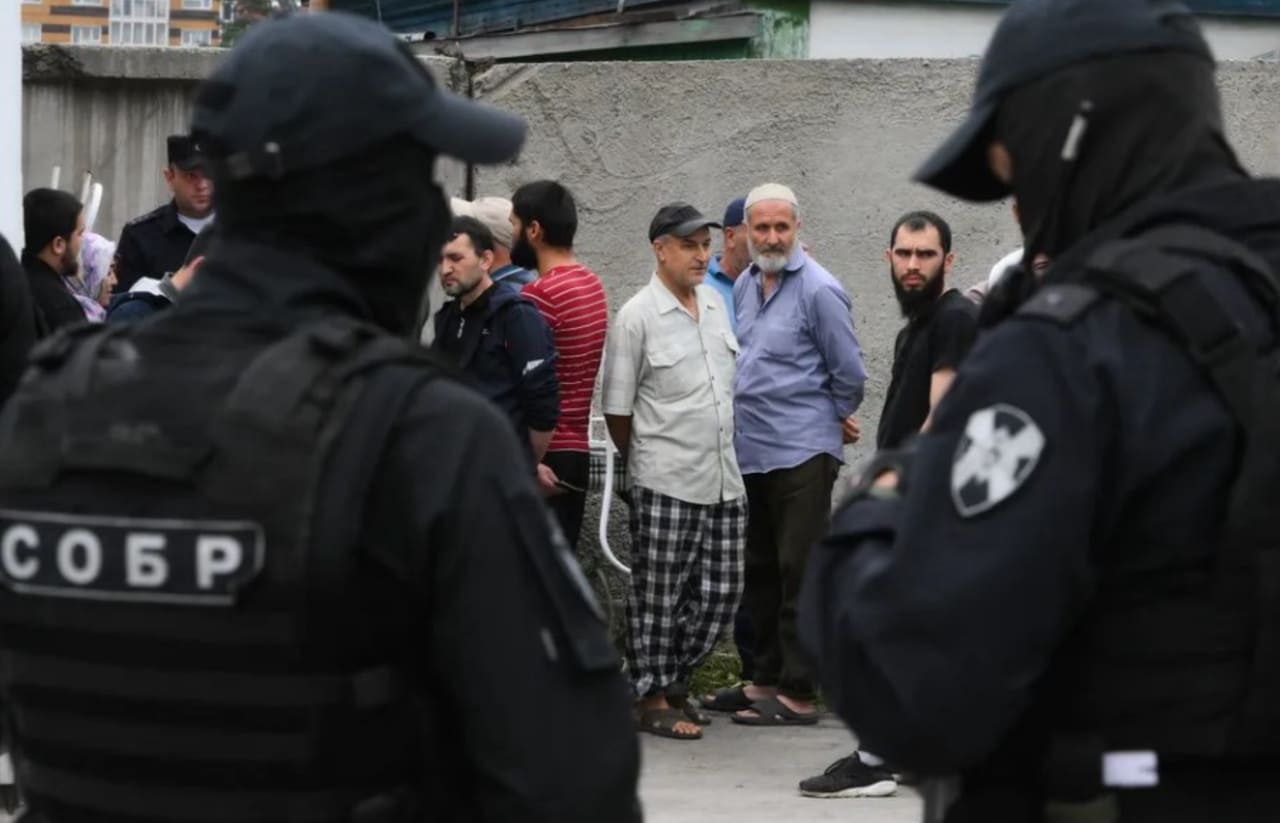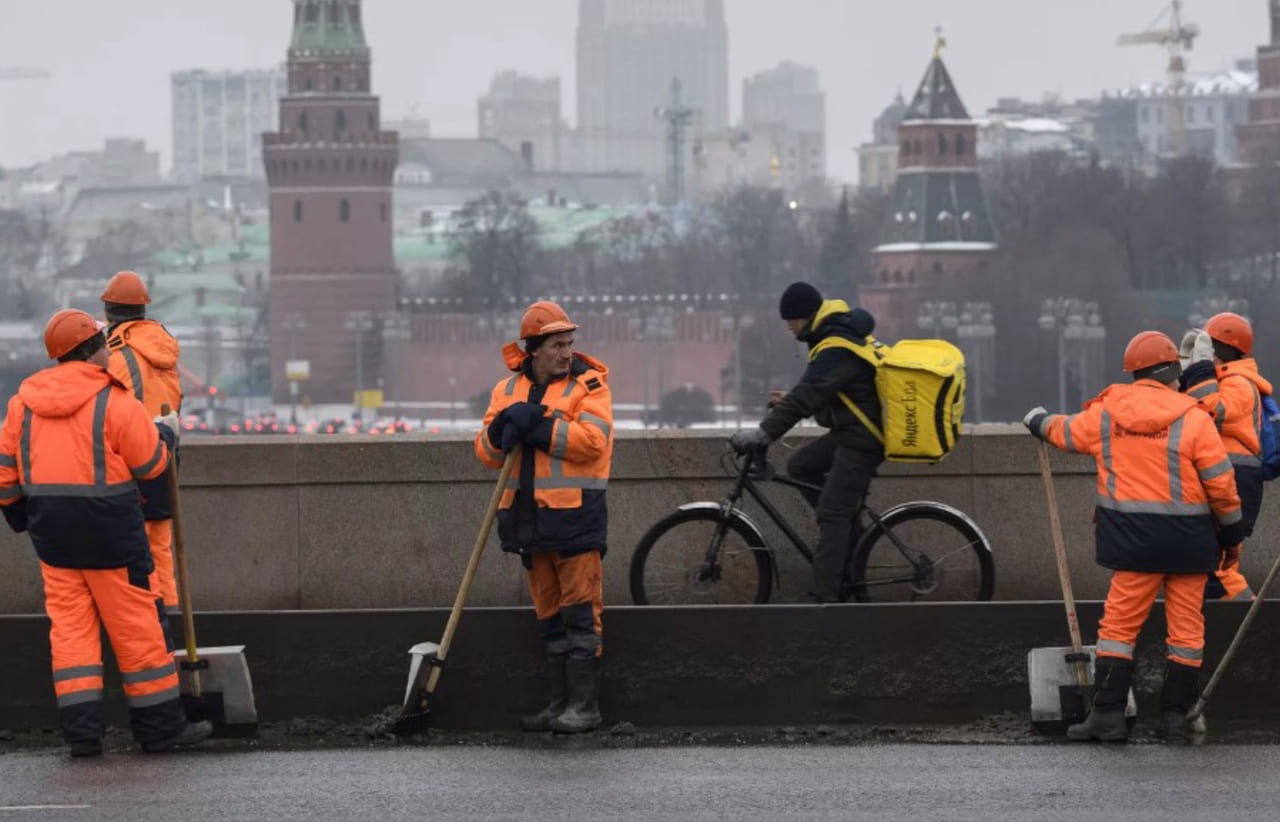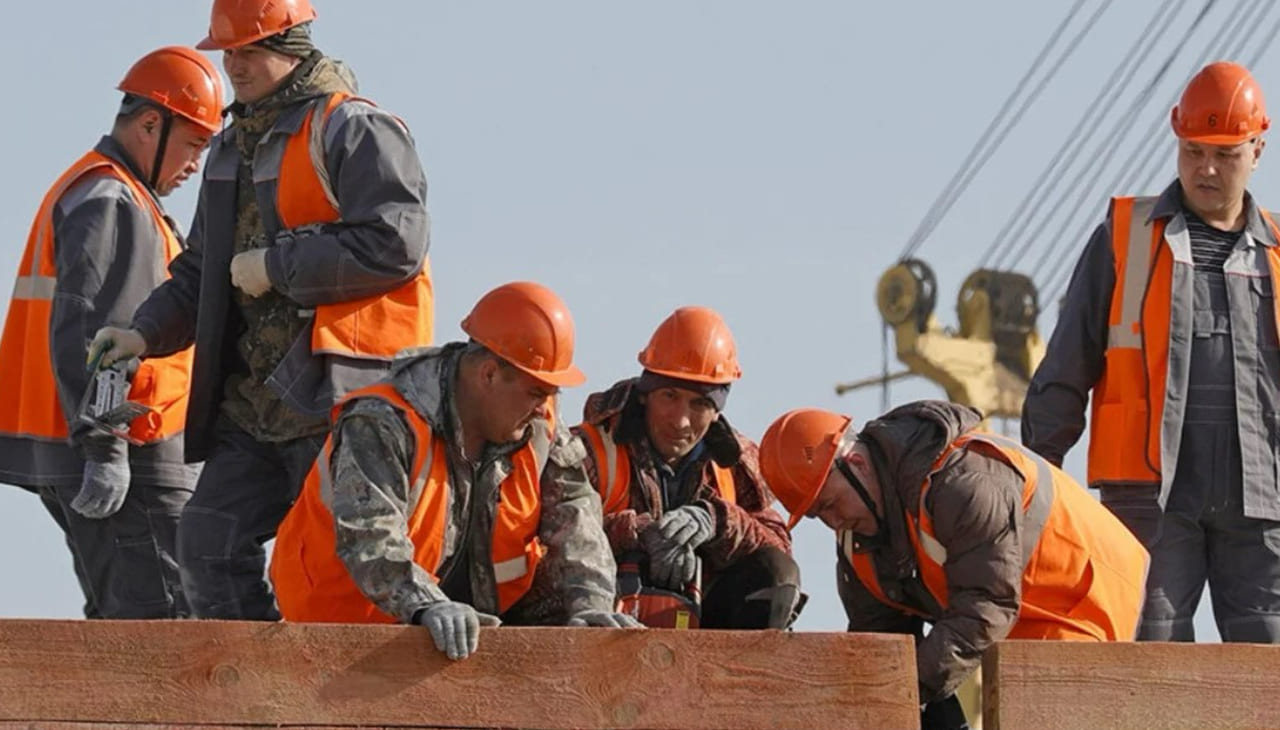In the aftermath of the terrorist attack in Crocus, Russian officials are reportedly making life increasingly difficult for migrants. An analysis by the Meduza website reveals that the Kremlin appears to be attempting to divert public attention from the ongoing war and surging prices.
Meduza highlights that, despite a pressing labor shortage in the country, Russian governors are imposing numerous restrictions on migrant workers. Since the beginning of the year, over 20 regions have banned the hiring of foreigners. Additionally, the State Duma has enacted laws aimed at deporting migrants, resulting in significant violations of their rights.
Enforcement agencies routinely conduct raids, and politicians frequently adopt a negative rhetoric towards migrant workers, further exacerbating the challenges they face.

Since the terrorist attack at Crocus City Hall in late March 2024, Russian media have consistently reported on law enforcement raids targeting illegal immigrants. These reports typically follow a familiar script: viewers see bewildered migrants being escorted by police to a bus, followed by announcements about the apprehended "illegals."
Alexander Bastrykin, head of the Investigative Committee, has called for the State Duma to strengthen migration legislation, openly labeling the parliament as "State Fool" and accusing it of complacency. Among the so-called "opposition," anti-migrant sentiments are also echoed by figures like Sergey Mironov, leader of Spravedlivaya Rossiya. He claims that citizens from occupied Mariupol are voicing concerns about "guest workers" who, according to him, behave as though they are above the law. Additionally, Leonid Slutsky, head of the Liberal Democratic Party of Russia (LDPR), has introduced a draft law aimed at preventing migrant families from settling in Russia.
At the same time, the number of governors banning immigrants from certain fields of work is on the rise. In the Moscow region, for instance, migrants are prohibited from working in kitchens and from selling alcohol and tobacco. In Chelyabinsk, recruitment in the trade sector and car workshops has been halted altogether.

According to Meduza, which has sources within the Presidential Apparatus and close to the Kremlin, the Russian government is deliberately exaggerating its efforts against migrants to divert public attention from pressing issues, primarily the ongoing war and rising prices.
A political scientist working with the Presidential Apparatus explains the Kremlin's strategy:
"There are standard topics that allow people to be distracted from more critical issues. The topic of migrants is included in this list. It's easy to artificially 'inflate' this issue: reports circulate about conflicts involving migrants or confrontations with local residents, and then it appears that the strengthened systems have resolved the problem—illegal immigrants are detected and expelled from the country. You’ll notice that protest sentiments, which have peaked, will subside after a while."
The political scientist notes that many Russians harbor negative feelings towards migrants. In certain areas, particularly in the Moscow region, locals consider them one of the most significant problems. This sentiment is supported by public opinion polls; 52% of respondents from the Russian Public Opinion Research Center (VCIOM) favor restricting the entry of labor migrants and their families into Russia. For comparison, only 40% of those surveyed in 2023 viewed labor migration negatively.

A source close to the Kremlin indicates that the issue of accelerated immigration is effective for diverting attention from other topics. However, it is "not so easy" to manage:
"This is a sensitive issue. Many Russians believe that migrants are taking their jobs. Furthermore, they perceive them as rude and disrespectful to local residents. But while discussing this matter, it’s essential not to overdo it; otherwise, chaos will ensue. Raids and various restrictions are seen as positive actions because they create the impression that the government is taking action."
The "complexity" of the topic arises from its coverage by the state and pro-government media. An employee of one such outlet notes that while news about crimes committed by migrants is engaging, it’s advisable not to delve too deeply into the issue.
“It’s sufficient to report the facts. However, if each incident is thoroughly investigated, gathering input from local residents and uncovering specific details, the number of views could significantly increase.”
The Kremlin advises officials to exercise caution in this regard. Sources close to the President's Office and the government indicate that the current administration does not oppose governors imposing restrictions on migrants in their regions—provided that these measures do not harm the local economy. In essence, while federal pro-immigration laws are off the table, it is important to project an image of actively addressing the "problem."

According to both interviewees, leaders of enforcement systems favor stricter restrictions on migrants, viewing foreign labor as a primary source of terrorist threats in the country.
“If you stop, your job will be easier,” one source explains. “But without migrants, many industries, particularly construction, would be crippled. Restrictions in this area will be delayed as long as possible.”
The Russian economy is facing a significant labor shortage. While the government asserts that there is a demand for workers in various sectors, the official unemployment rate stands at a record low of 2.6%. Current data indicates that only two million people will be actively seeking jobs in 2024, with 800,000 of those being rural residents. According to Labor Minister Anton Kotyakov, this employee shortage is expected to persist for an extended period, with a current need for 2.4mn workers.
Despite this pressing need, hostility towards migrants continues to rise, which experts warn could lead to serious consequences. What will happen in sectors where Russians are unwilling to work? Labor migrants are also leaving the country due to the declining value of the ruble and the risks associated with potential conscription into the military.
If anti-migrant campaigns intensify and further restrictions are imposed, this trend will likely accelerate. Although there are efforts to bring in workers from Latin America and Africa, the current labor pool lacks individuals who can effectively replace Central Asian migrants, as highlighted in a Meduza report.
Follow Daryo's official Instagram and Twitter pages to keep current on world news.
Comments (0)